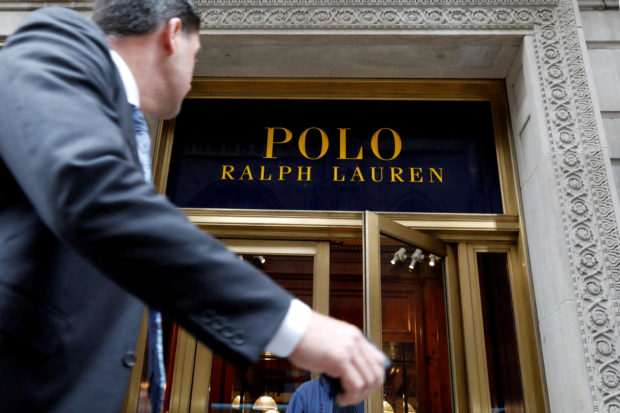
A man walks past Ralph Lauren Corp.’s flagship Polo store on Fifth Avenue in New York City, U.S. REUTERS/Brendan McDermid/File photo
Ralph Lauren Corp and Michael Kors-owner Capri Holdings blew past earnings estimates, underscoring an unwavering demand for luxury apparel and handbags from wealthy consumers who remain largely unscathed by red-hot inflation.
Surging prices have had little impact on middle- and high-income households who have been happily splurging on designer labels, using what they saved during the pandemic when everything from foreign holidays to eating out came to a halt.
“High-income consumers are shopping in a way that is different from other times of inflation,” Jane Hali & Associates analyst Jessica Ramirez said.
“Their priority is to shop for events they are returning to now after coming out of lockdowns and this is putting luxury goods companies in a good place.”
Still, shares of both the companies fell about 3 percent in weak broader market as their sales in China still proved to be a sore spot due to recurring COVID-19 lockdowns.
Capri chief executive John Idol said he was “less optimistic” about the pace of the demand recovery in the key luxury goods market.
Meanwhile, European rivals LVMH and Gucci-owner Kering have also seen a strong increase in their sales, benefiting from some luxury spending shifting to Europe as U.S. tourists took advantage of a stronger dollar.
Ballooning inventories
Capri and Ralph Lauren recorded an increase of 66 percent and 47 percent, respectively, in inventories at the end of their first quarters, as the companies expedited seasonal product shipments to avoid last year’s supply chain delays.
The higher spending on freight to get products to shelves faster caused gross profit margins at Capri and Ralph Lauren to decline, despite the companies increasing prices.
A strong game
Ralph Lauren‘s revenue rose 8.3 percent to $1.49 billion in the first quarter, while Capri‘s revenue rose 8.5 percent to $1.36 billion, both beating analysts’ expectations.
Excluding items, Capri earned $1.50 per share, topping estimates of $1.36, while Ralph Lauren‘s profit of $1.88 per share beat expectations of $1.75, according to Refinitiv IBES data.